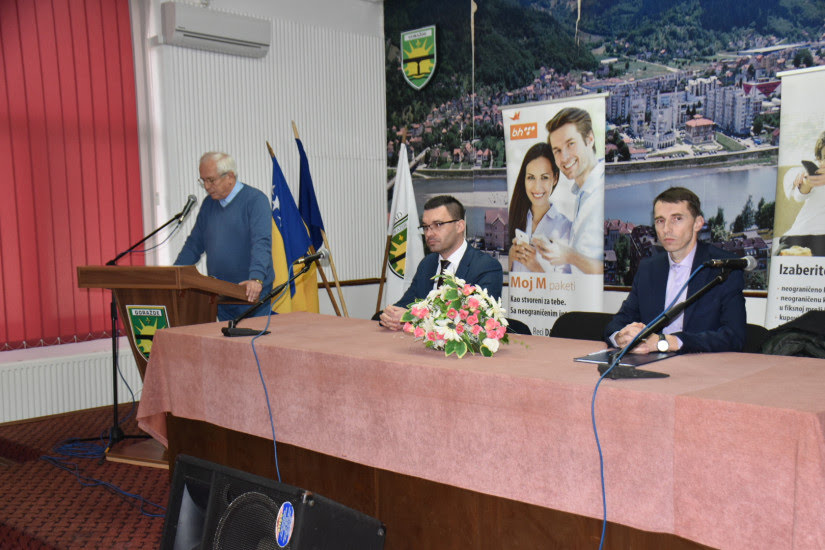The "Truth for Goražde" foundation organized today a public hearing on the non-prosecution of war crimes committed against civilians during the siege of Goražde in the period 1992 to 1995.
At the forum on the occasion of the seventh anniversary of the Foundation, representatives of the Institute for Research of War Crimes and International Law from Sarajevo spoke. It was emphasized that even three decades after the beginning of the siege of Goražde, no one was held accountable for the crimes against the civilians of that city where the most monstrous crimes were committed.
- The civilian population was exposed to the most heinous crimes, because the targets were not chosen here. The number of killed children and killed civilians speaks of the monstrosity and intentions of the criminals. There is relevant documentation, so-called orders. The main headquarters of the VRS and the brigades in that structure, in which shelling of civilian targets such as the market, the mosque or the war hospital where the Red Cross flag was displayed are requested. It was intended to bring civilians into conditions that are impossible for survival, and we know that this is one of the acts of genocide - said the senior research associate of the Institute for the Research of Crimes against Humanity and International Law, Assoc. Dr. Ermin Kuka.
The domestic judiciary is responsible for the devastating fact that, despite all the destruction, evidence, living witnesses, and even the documentation that was submitted from the Hague Tribunal, none of the participants in the crimes against the inhabitants of the former UN "Protected Zone" were held accountable.
- Today, Goražde is one of the primary targets of sorts for equalizing and relativizing everything that happened during the period of aggression. How else to explain the prosecution of about thirty ARBiH fighters from Goražde and not a single convicted member of the VRS for immeasurably more massive and serious forms of crime that were committed, as I said, continuously, systematically and massively - said a senior expert associate of the Institute for Research on Crimes Against Humanity and International Law Ph.D. Muamer Džananović.
He added that members of the East Bosnian Operational Group (IBOG) have received more than 80 years in prison to date.
-Of course, everyone should be held accountable for their crimes, but what is happening is frustrating, to say the least. I remind you that the first criminal charges for crimes against civilians in Goražde were filed against dozens of people to the cantonal Prosecutor's Office in Goražde in 1995 and 1996, and only in recent years were the first indictments brought before the State Prosecutor's Office - he noted.
He is of the opinion that Goražde and the truth about the siege and crimes is a topic that is less and less interesting to the public, the media and political representatives, and especially, as he said, to higher levels of government.
- In this regard, my presentation at this forum is in the context of specific proposals to the local government, what to do and how to relate to the theme of the meeting, but also to the culture of memory in general. We must leave the truth as a legacy to current and future generations - Džananović pointed out.
The Foundation "Truth for Goražde" recalled that only two commanders of units - Branislav Lasica and Miroslav Milović - were accused of crimes against the citizens of Goražde.
- Brane Petković, Lazar Mutlak and others live freely in Serbia, the agony and persecution of the defenders of Goražde continues for years. If it continues like this, history will be rewritten, and the victim will be a criminal - warned the "Truth for Goražde" Foundation.
.jpg)
.jpg)
.jpg)
